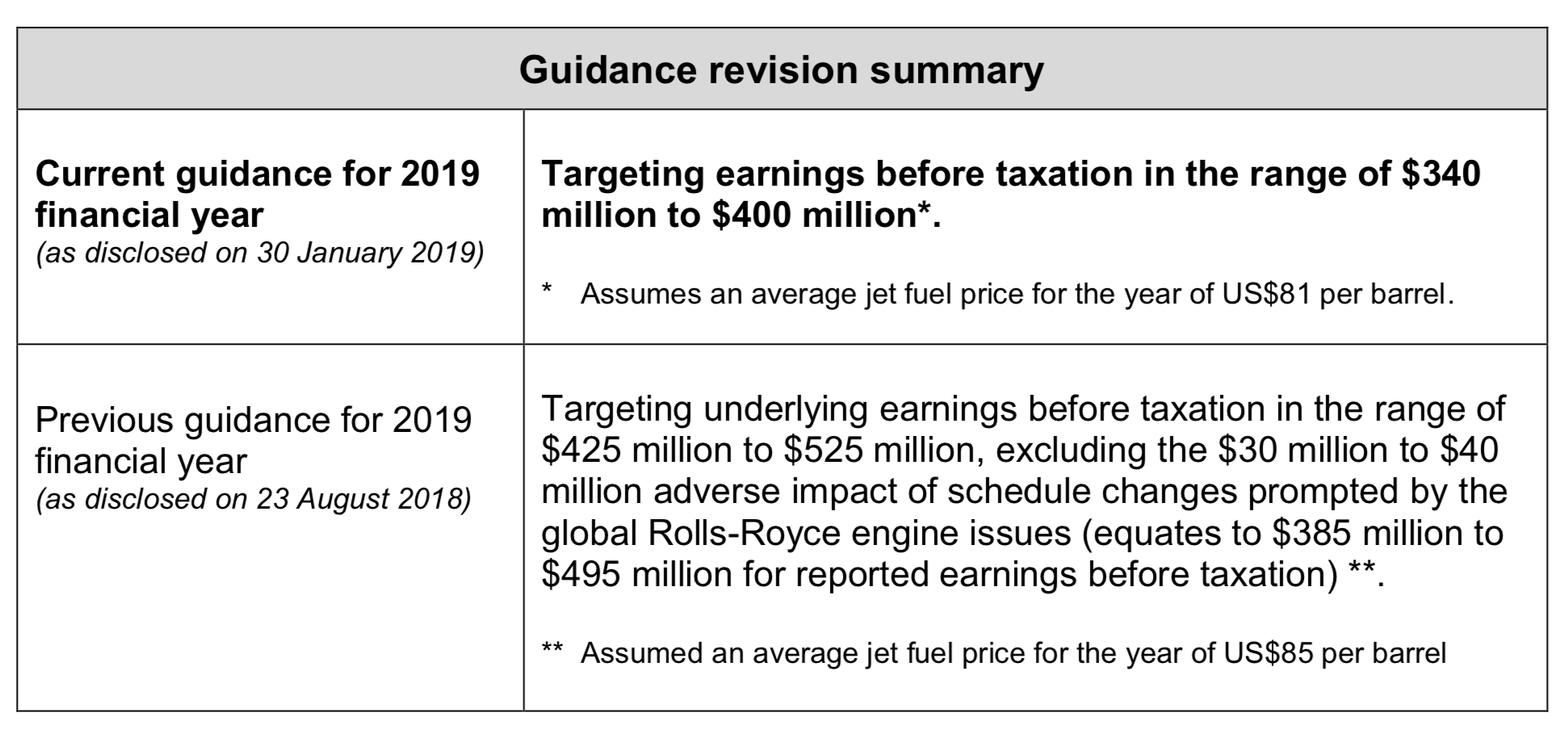Air New Zealand is today providing revised guidance to its earnings before taxation for the 2019 financial year.
The company now expects earnings before taxation of $340 million to $400 million for the year ended 30 June 2019. This includes the impact of the global Rolls-Royce engine issues.
The previously announced guidance was for underlying earnings before taxation of $425 million to $525 million, which excluded an estimated $30 million to $40 million impact of schedule changes prompted by the global Rolls-Royce engine issues.
The Rolls-Royce engine issues continue to be challenging for the business, both commercially and operationally, but are expected to improve as the year progresses.
The revised guidance reflects updated revenue forecasts based on recent forward booking trends. Revenue growth is forecast to remain positive, albeit at a slower rate than previously anticipated. Markets showing signs of slower growth include leisure travel within domestic New Zealand and softening inbound tourism traffic.
The company has made adjustments to its schedule which will reduce the rate of capacity growth to approximately 4% for the full year, at the low end of its original capacity guidance of 4% to 6%.
Partially offsetting the impact from slower revenue growth since the previous guidance is an assumed average jet fuel price for the remainder of the financial year of approximately US$75/bbl. Based on that assumption, the average jet fuel price for the full year would be US$81/bbl.
Chief Executive Officer Christopher Luxon stated “we are concerned with our latest outlook which reflects the softer revenue growth that we are seeing in the second half of the year. Therefore, we have commenced a review of our network, fleet and cost base to ensure the business is on a strong footing going forward.”
The full year guidance will be discussed in more detail at the interim result announcement on 28 February 2019. However, Air New Zealand remains committed to its distribution policy that looks through short-term earnings volatility to provide a consistent and sustainable ordinary dividend. Accordingly, the Board anticipates declaring an interim dividend of 11 cents per share.

